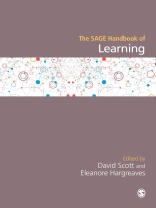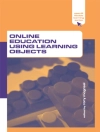‘Profound and useful, readers will benefit from the systematic treatment of learning through superb scholarship. Cultural-philosophical-curricular-pedagogical-historical perspectives on learning, curriculum, pedagogy, and assessment, and learners make this collection unique.’ – Carol A. Mullen, Professor of Educational Leadership, Virginia Tech
Learning is a fundamental topic in education. Combining traditional views of learning and learning theory with sociocultural and historical perspectives, this Handbook brings together original contributions from respected researchers who are leading figures in the field.
The editors provide a insightful introduction to the topic, and the theories, frameworks, themes and issues discussed in the individual chapters are central to each and every learning episode.
The Handbook is organized into four sections, each beginning with a short introduction:
- Philosophical, Sociological and Psychological Theories of Learning
- Models of Learning
- Learning, Curriculum, Pedagogy and Assessment
- Learning Dispositions, Life-Long Learning and Learning Environments
Tabella dei contenuti
PART I: Philosophical, Sociological and Psychological Theories of Learning
Introduction (Part One) – David Scott and Eleanore Hargreaves
Learning, Complexity and Emergent (Irreversible) Change – Deborah Osberg
Learning in relation to Culture and Social Interaction – Harry Daniels
Learning and Philosophy – Emma Williams and Paul Standish
Phenomenology and Learning – David Aldridge
A Dialogical Relationship with Cultural-Historical Activity Theory: A Realist Perspective – Iskra Nunez
Deleuze and Learning – David R. Cole
Sociomateriality and Learning: A Critical Approach – Tara Fenwick
The Concept of Learning in a Cultural-Historical Perspective – Seth Chaiklin
The Post-Human and Responsible Experimentation in Learning – Richard Edwards
Learning, Commognition and Mathematics – Anna Sfard
PART II: Models of Learning
Introduction (Part Two) – David Scott and Eleanore Hargreaves
Knowledge, Curriculum and Learning: ‘What Did You Learn in School?’ – Alex Moore
A Social Semiotic Multimodal Approach to Learning – Gunther Kress and Jeff Bezemer
Learners, Politics and Education – Barbara Crossouard and Rebecca Webb
Learning, Governance and the European Educational Space – Martin Lawn and Rosario Sergio Maniscalco
The Elements of a Learning Environment – David Scott and Carol Evans
PART III: Learning, Curriculum, Pedagogy and Assessment
Introduction (Part Three) – Eleanore Hargreaves and David Scott
Formative Assessment – A Success Story – John Pryor
Professional Development in Dialogic Teaching: Helping Teachers Promote Argument Literacy in Their Classrooms – Alina Reznitskaya and Ian Wilkinson
Interactions between Teaching and Learning Mathematics in Elementary Classrooms – Aki Murata
Violence in Schools: The Role of Authoritarian Learning – Clive Harber
Learning, Pedagogy and Assessment – Bethan Marshall
Teaching and Learning in a Global World – Lisa Smulyan
Learning in a Professional Learning Community: The Challenge Evolves – Vicki A. Vescio and Alyson Adams
PART IV: Learning Dispositions, Life-Long Learning and Learning Environments
Introduction (Part Four) – Eleanore Hargreaves and David Scott
Meta-Cognition and Self-Regulation in Learning – Deborah L. Butler
Pedagogy, Fear and Learning – Eleanore Hargreaves
Meta-Learning in Classrooms – Chris Watkins
Transformative Learning – Knud Illeris
Learning and Pedagogic Relations – Tone Saevi
Affective Dimensions of Learning – Carolyn Jackson
The Impact of Gender, Race and Class on Learning Dispositions in Schools – Diane Reay
Learning and New Media – Mary Kalantzis and Bill Cope
Harnessing the Power of Knowledge and Beliefs in Teaching and Learning: Interventions that Promote Change – P. Karen Murphy, Carla M. Firetto and Valerie A. Long
Endpoint – David Scott and Eleanore Hargreaves
Circa l’autore
Eleanore Hargreaves is Reader in Learning and Pedagogy at UCL Institute of Education.












